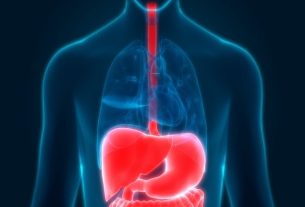Medicines for heart failure, such as captopril, losartan or furosemide, help to improve the dilation of vessels, increase blood flow, remove excess fluids from the body, preventing them from accumulating in the veins and making the heart beat difficult.
These remedies make it easier for the heart to work and alleviate the symptoms of heart failure such as pain or discomfort in the chest, palpitations, excessive tiredness or swelling in the legs or feet, for example. Know how to identify the symptoms of heart failure.
Medicines for heart failure must be recommended by a cardiologist, who can combine the use of more than one type of medicine, according to the symptoms and severity of the disease. In most cases, heart failure medications must be taken for life or for the period of time indicated by the cardiologist.

The main medications that may be prescribed by your doctor to treat heart failure are:
1. ACE inhibitors
ACE (angiotensin converting enzyme) inhibitor medications help control the symptoms of heart failure, such as swelling in the belly and legs, feet and ankles, by removing excess fluid from the body, reducing the volume of blood that circulates in the arteries and prevents them from accumulating in the veins, making it difficult for the heart to beat.
Some examples of ACE inhibitors that may be recommended by a cardiologist for the treatment of heart failure are captopril, enalapril, ramipril or lisinopril, for example.
2. Angiotensin receptor blockers
Angiotensin receptor blockers may also be recommended by the doctor for heart failure, when treatment with ACE inhibitors is not considered adequate or causes side effects that prevent their use, such as cough or angioedema, for example. Understand what angioedema is.
The angiotensin receptor blockers normally recommended by the doctor are losartan, candesartan, telmisartan or valsartan, for example.
3. Diuretics
Diuretics, such as furosemide, bumetanide, torsemide, hydrochlorothiazide, metolazone or chlorthalidone, can be used in the treatment of heart failure to remove excess fluid from the body, reducing blood volume, blood pressure and consequently the pressure exerted on the heart.
In addition, diuretics relieve swelling in the legs and feet caused by the disease and in the lungs, helping you breathe better.
4. Digital
The digitalis used to treat heart failure is digoxin, which acts by increasing the force of contraction of the heart, stabilizing irregular heartbeats and allowing more effective pumping of blood, which helps to reduce the symptoms of heart failure and improve the quality of life.
However, digoxin is a toxic medication and requires frequent medical monitoring and examinations.
5. Beta blockers
Beta blockers act by reducing pressure on the heart, reducing heart rate and increasing the strength of the heart muscle, and in this way help to reduce the symptoms of heart failure.
Some examples of beta blockers most recommended by cardiologists are carvedilol, bisoprolol or metoprolol.
6. Vasodilators
Vasodilators act by increasing the relaxation of blood vessels, facilitating the pumping of blood by the heart, and are indicated for people who have side effects to ACE inhibitors or angiotensin receptor blockers, hypotension or kidney failure.
Vasodilators that may be recommended by a cardiologist for the treatment of heart failure include hydralazine or isosorbide.
7. Sinoatrial node inhibitors
The sinoatrial node inhibitor used to treat heart failure is ivabradine, which helps to stabilize and slow the heartbeat, reducing the effort the heart makes to pump blood, relieving the symptoms of heart failure.
8. Neprilysin and angiotensin receptor inhibitors
Neprilysin and angiotensin receptor inhibitors are a combination of two medicines for the treatment of heart failure, which act by reducing blood pressure and increasing the elimination of water from the body, preventing it from accumulating in the veins and making the heart beat difficult. In this way, this type of medicine reduces the heart’s effort to pump blood to the body, relieving the symptoms of heart failure.
The neprilysin and angiotensin receptor inhibitor that may be recommended by the cardiologist is sacubitril + valsartan.
Possible side effects
The medicines used to treat heart failure can cause some side effects, such as dizziness, coughing, nausea, excessive tiredness and decreased blood pressure, depending on the medicine prescribed by the doctor.
If these side effects cause a lot of discomfort, you should notify your doctor, but it is not advisable to interrupt treatment without your consent.

Sign up for our newsletter and stay up to date with exclusive news
that can transform your routine!
Warning: Undefined array key "title" in /home/storelat/public_html/wp-content/plugins/link-whisper-premium/templates/frontend/related-posts.php on line 12
Warning: Undefined array key "title_tag" in /home/storelat/public_html/wp-content/plugins/link-whisper-premium/templates/frontend/related-posts.php on line 13



